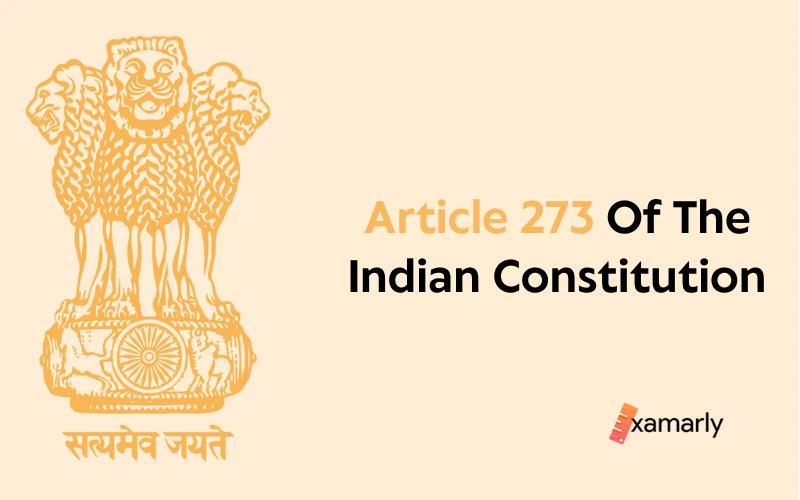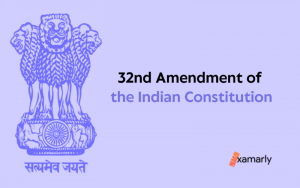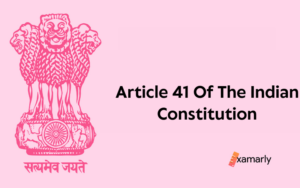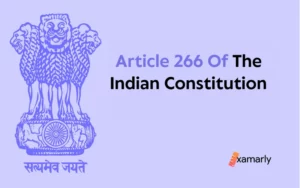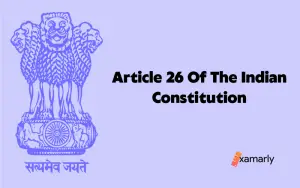An Overview
Jute and jute products are an important agricultural and industrial sector in many countries, and the export of these products can provide significant economic benefits. To encourage and support the export of jute and jute products, many governments provide financial incentives in the form of grants in lieu of export duty.
Article 273 of the Indian Constitution contains provisions for the amount that is given by the Government of India as a substitute for the tax levied on exporting jute and jute products. The article discusses the grants that are for the purpose of promoting jute and jute products.
These grants are a form of reimbursement for the export duty that would have been paid on the products if they were not exported.
In this blog post, we will explore the concept of grants in lieu of export duty on jute and jute products, including a brief background of Article 273, the explanation of the clauses of the article, and some frequently asked questions related to it.
Read till the end to gain a clear understanding of Article 273 of the Indian Constitution.
- An Overview
- What Does Article 273 Of The Indian Constitution Deal With?
- Background Of Article 273 Of The Indian Constitution
- Clause (1) of Article 273 Of The Indian Constitution: Explained
- Clause (2) of Article 273 Of The Indian Constitution: Explained
- Clause (3) of Article 273 Of The Indian Constitution: Explained
- Summing Up
- FAQs Related To Article 273 Of The Indian Constitution
What Does Article 273 Of The Indian Constitution Deal With?
Article 273 deals provisions that are related to the amount that is paid by the government of India to the States for export tax that it levies on jute and the products made out of jute. The provisions of this article are contained in the form of three clauses.
Since 1916, rules for regulating the taxation on jute were put in place. In 1935, under a law called the Government of India Act, these rules started to apply to the regions of India where jute is grown. It means the taxes on jute were implemented for the provinces that were growing jute in the country.
Background Of Article 273 Of The Indian Constitution
Let us take a look at the background of Article 273 briefly. This would facilitate our understanding of the provisions of this article.
- The Constituent Assembly discussed the Draft Article 254 for the purpose of formulating Article 273 of the Indian Constitution. The debate regarding this article took place on August 8, 1949.
- This Draft Article discussed about allocation of a portion of the export duty that was collected by the Union government on jute and products made out of jute.These taxes would be allocated to the States in which jute is grown.
- However, the Chairman of the Drafting Committee proposed an amendment. He suggested that instead of allocating a fixed percentage of export duty, the government would withdraw a certain sum of money from the Consolidated Fund of India every year as aid to the States of Bengal, Bihar, Assam and Orissa.
- In addition to this, the President would decide the amount and this aid would be given for a maximum of 10 years.
- The proposed amendment was accepted after debate. This amended version of the Draft Article was included in the Constitution of India on August 8, 1949.
Clause (1) of Article 273 Of The Indian Constitution: Explained
273. Grants in lieu of export duty on jute and jute products.
(1) There shall be charged on the Consolidated Fund of India in each year as grants-in-aid of the revenues of the States of Assam, Bihar, [Odisha] and West Bengal, in lieu of assignment of any share of the net proceeds in each year of export duty on jute and jute products to those States, such sums as may be prescribed.
This first clause of Article 273 talks about a certain amount of money that the Government of India will set aside each year to give to the states of Assam, Bihar, Odisha, and West Bengal. This money is intended to help these states with their finances.
This amount is being given to them instead of giving them a share of the money that the government earns from the taxation imposed on the export of jute and products made out of jute. The specific amount of money that will be given to these States each year will be determined by the Government of India.
Clause (2) of Article 273 Of The Indian Constitution: Explained
(2) The sums so prescribed shall continue to be charged on the Consolidated Fund of India so long as any export duty on jute or jute products continues to be levied by the Government of India or until the expiration of ten years from the commencement of this Constitution whichever is earlier.
The second clause of Article 273 of the Indian Constitution states that the money that the Government of India set aside for the states of Assam, Bihar, Odisha and West Bengal will continue to be taken from the Consolidated Fund of India for as long as the Government of India continues to collect taxes on the export of jute or products made out of jute. This amount could also be withdrawn from the Consolidated Fund of India for a maximum of ten years from the start of the Indian constitution, or whichever comes first.
However, since this provision was only effective for the first ten years after the constitution went into effect, this article is now completely irrelevant and has no bearing on anything.
Clause (3) of Article 273 Of The Indian Constitution: Explained
(3) In this article, the expression “prescribed” has the same meaning as in article 270.
The final clause of Article 273 highlights that the word “prescribed” in this article has the same definition as the word “prescribed” in Article 270 of the Indian Constitution.
In other words, wherever the word “prescribed” has been used in this article, it assumes the same meaning as when it is used in Article 270 .
In Article 270 of the Indian Constitution, the word “prescribed” means something that has been decided by the President of India. Initially, before the formation of the Finance Commission, the President is to decide the amount. However, after the formation of the Finance Commission, the President will decide the amount after considering the recommendations made by the Finance Commission.
You Might Also Like:
| Article 271 Of The Indian Constitution | Article 272 Of The Indian Constitution |
| Article 268 Of The Indian Constitution | Article 269 Of The Indian Constitution |
Summing Up
The conclusion for Article 273 of the Indian Constitution can be summarised in the following points.
- Through first clause of Article 273 of the Indian Constitution, we got to know that it provides for a certain amount of money to be set aside by the Government of India each year to give to the states of Assam, Bihar, Odisha, and West Bengal, as a financial aid to these states.
- This aid is given in lieu of a share of the money the government earns from taxes imposed on the export of jute and products made out of jute. The specific amount of money given to these states will be decided by the Government of India.
- The second clause of Article 273 of the Indian Constitution states that the financial aid given to the states of Assam, Bihar, Odisha and West Bengal will continue as long as the government continues to collect taxes on export of jute and jute products.
- This aid could be given for a maximum of ten years from the start of the Indian Constitution or whichever comes first.
- The third clause of Article 273 of the Indian Constitution clarifies that the term “prescribed” in this article has the same meaning as it does in Article 270 of the Indian Constitution.
- In Article 270, the term “prescribed” means something that has been decided by the President of India. Initially, before the formation of the Finance Commission, the President alone is to decide the amount, but after formation of the Finance Commission, the President will decide the amount after considering the recommendations made by the Finance Commission.
FAQs Related To Article 273 Of The Indian Constitution
What Is A Grant In Lieu Of Export Duty On Jute And Jute Products?
A grant in lieu of export duty on jute and jute products is a financial incentive provided by the government to jute and jute product manufacturers and exporters. It is a form of reimbursement for the export duty that would have been paid on the products if they were not exported.
The purpose of the grant is to encourage and support the export of jute and jute products, which are important agricultural and industrial sectors in many countries.
Who Is Eligible For Grants In Lieu Of Export Duty On Jute And Jute Products?
Eligibility for grants in lieu of export duty on jute and jute products varies depending on the country and the specific program.
Generally, manufacturers and exporters of jute and jute products who meet certain criteria, such as being based in the country and exporting to certain markets, are eligible for the grant. The grant may also have certain conditions such as minimum export value or be restricted to small and medium enterprises.
What Are The Conditions Or Criteria That Need To Be Met To Receive The Grant?
The conditions or criteria that need to be met to receive the grant in lieu of export duty on jute and jute products varies depending on the country and the specific program. Some common criteria includes being based in the country where the grant is being provided, exporting jute and jute products to certain markets, providing necessary documents such as certificate of origin, export invoices, bill of lading, etc, and being a small or medium enterprise.
How Often Are Grants In Lieu Of Export Duty On Jute And Jute Products Available?
The availability of grants in lieu of export duty on jute and jute products varies depending on the country and the specific program. Some countries may offer the grant on an ongoing basis, while others may only offer it at certain times of the year or for specific periods.


